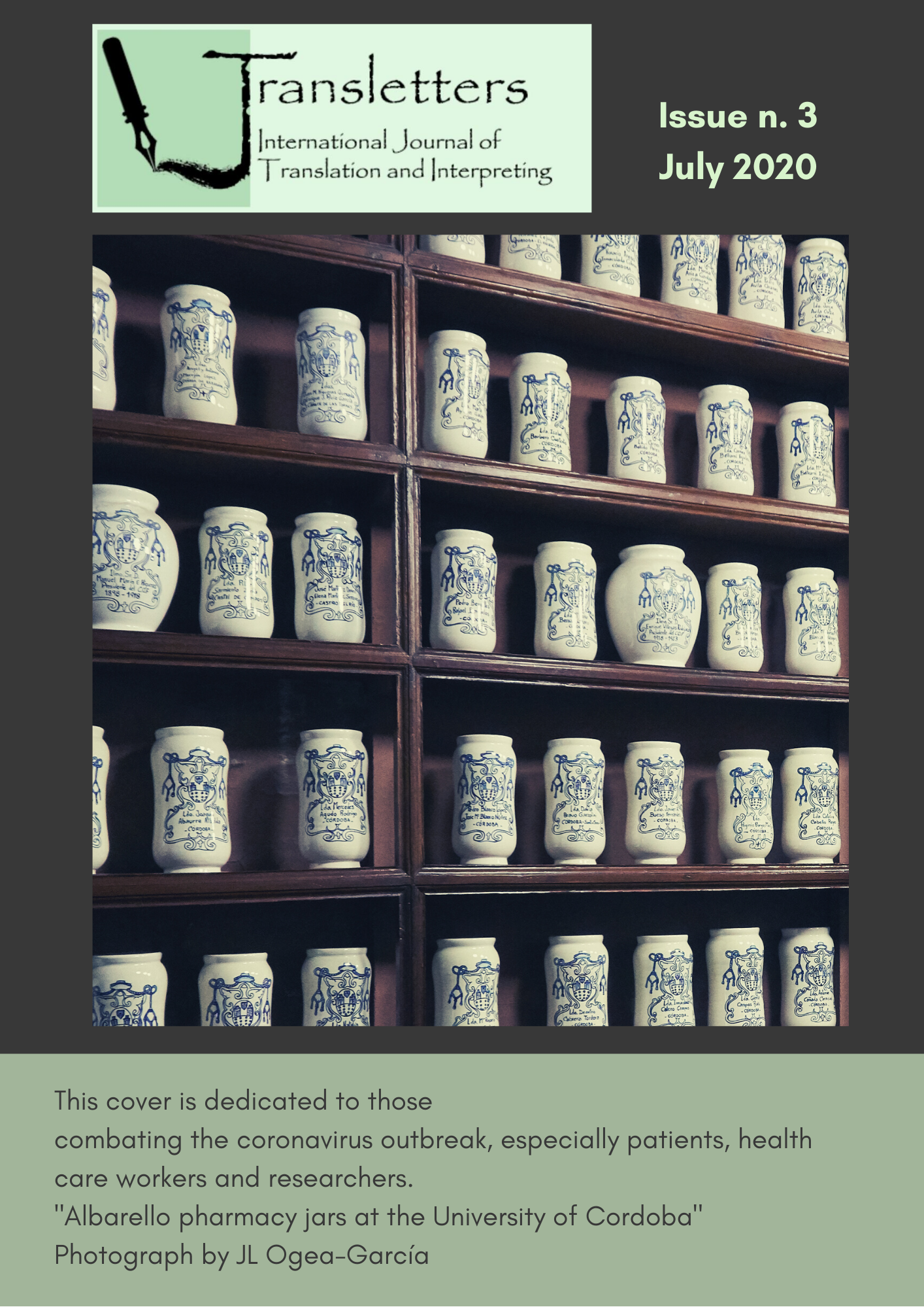Translation Profession Status in Vietnam: Document and Empirical Analyses
Contenido principal del artículo
Resumen
Although Olvera-Lobo et al. (2005) found that the volume of documents needed to be translated for cross-national purposes have multiplied manifold, there is no research on the extent of professionalization of the translator in Vietnam until now. This study thus aims at describing the state of the translation profession in Vietnam. While researches showed the academic attempts to enhance the professionalization of this profession, legal instruments’ analysis indicated the lack of official development evidence, especially in the full-time freelancing type. Via empirical survey and interview data, gaps between university translation degree and the real industry were also pointed out.
Descargas
Los datos de descargas todavía no están disponibles.
Detalles del artículo
Cómo citar
Hoang, L. B. (2020). Translation Profession Status in Vietnam: Document and Empirical Analyses. Transletters. International Journal of Translation and Interpreting, (4), 99–123. Recuperado a partir de https://journals.uco.es/tl/article/view/12613
Número
Sección
Artículos
Proposed Policy for Journals That Offer Open Access
Authors who publish with this journal agree to the following terms:
- Authors retain copyright and grant the journal right of first publication with the work simultaneously licensed under a Creative Commons Attribution License that allows others to share the work with an acknowledgement of the work's authorship and initial publication in this journal.
- Authors are able to enter into separate, additional contractual arrangements for the non-exclusive distribution of the journal's published version of the work (e.g., post it to an institutional repository or publish it in a book), with an acknowledgement of its initial publication in this journal.
- Authors are permitted and encouraged to post their work online (e.g., in institutional repositories or on their website) prior to and during the submission process, as it can lead to productive exchanges, as well as earlier and greater citation of published work (See The Effect of Open Access).

